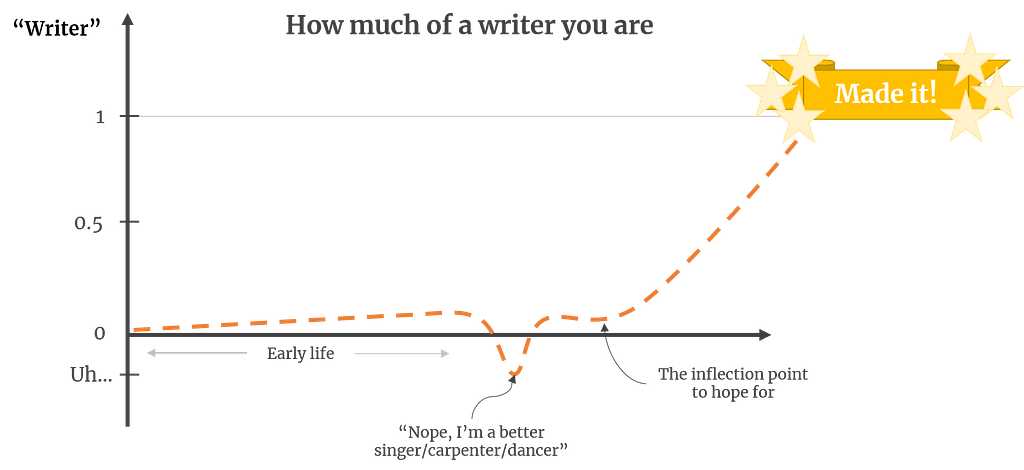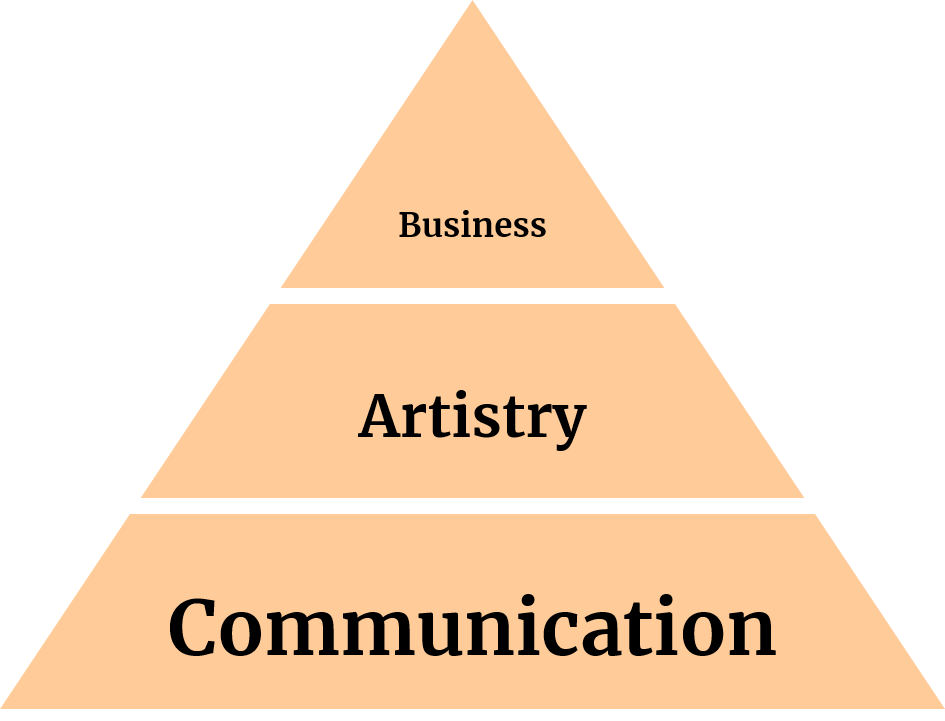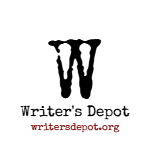
How to Start Being a Writer by Becoming a Better CommunicatorA ritual of communication is more important for getting into the headspace of writing than it is to actually put words on the page
Coming into your own as a writer is a long drawn-out process, mostly because it takes time to really understand what constitutes being one. A good writer is many things at once — a fabricator, a raconteur, a poet, a language expert, a domain expert, and an imaginative. He or she has honed each of these pillars over years (if not decades) of guided or unguided practice. It takes time to be all six at the same time.
There is, of course, the element of learning by repetition, which is what a lot of great writing advice talks about. It is essential, when you’re struggling with your writing, to force yourself into a schedule to produce some measure of work. Some suggest producing a certain number of words or pages, while others suggest producing a certain quantity or quality of ideas.
What you, as an aspiring writer, should naturally have realized by now is that the challenge is for the two facets of being a writer — the personal and the professional — to coexist. You surely find yourself mixing and matching pieces of advice in this very way. Quantitative metrics help you grapple your way towards business goals, while the advice to ‘become an artist first’ serves to make you distinctive.
You will also surely have found that these two facets are almost always in conflict. On the very same page of search results, even right here on Medium, there will be an article with a title much like “Want to Be a Writer? Stop being an artist — your writing is a business”, and right below it, another with a title much like “A Good Writer is a Good Artist First”.
This can quickly get confusing to a beginner, and more so because none of them are wrong per se.
Here’s a science-y graphical representation of what you might be going through as a result of your efforts to start being a writer, if not the writer you want to be.
 Pretty basic PowerPoint-generated graphic. Sometimes PowerPoint can be better than writing. *sigh* | Image by author © Sarang Deshpande 2021
Pretty basic PowerPoint-generated graphic. Sometimes PowerPoint can be better than writing. *sigh* | Image by author © Sarang Deshpande 2021
It takes time to understand that the seemingly conflicting pieces of advice are nothing more than strategies to approach your writing. (Well, blogging on Medium is in fact racking up a problem of “designed headlines”, which take away from the reader’s experience by trying to convert click-throughs, but I’ll leave that whole discussion for later.) Like with any good arsenal of strategies, you don’t just stick to one weapon for every situation you encounter.
Finally, note also that these ‘strategies’ are of hardly any use when you want to start being a writer. What about the foundation, right? At the very core of being a writer is something that is not discussed often.
You really, really need to want to be a communicator. And you really, really want to need to be a communicator.
The act of writing, the product of writing, and the process of writing are all very seductive. It is a showcase of your intellectual dominion. It’s great that so many people want to become writers, but having a command over your language is almost never enough. Writing is actually an act of communication, right? If you don’t want to communicate — heck, if you’re afraid to be a communicator — then you will likely have a hard time writing the way you wish in your dreams.
The base of the ‘Writer’s Pyramid’
The pyramid below is how I tend to think about my own writing:
 The Writer’s Pyramid: An oversimplified demonstration of an otherwise complex issue | Image by author © Sarang Deshpande 2021Do I wish to earn a secondary income from it? Yes.Do I wish to write something that will push boundaries rather than something trivial (but which sells to hordes)? Yes.Do I want to tell people about something I’m thinking? Yes.
The Writer’s Pyramid: An oversimplified demonstration of an otherwise complex issue | Image by author © Sarang Deshpande 2021Do I wish to earn a secondary income from it? Yes.Do I wish to write something that will push boundaries rather than something trivial (but which sells to hordes)? Yes.Do I want to tell people about something I’m thinking? Yes.
Note that the three tiers of the pyramid relate to three different things and three different scopes:
The first is the broad intent, which will affect all of your writing collectively.
The second is the personal intent, which will affect how you write every given piece.
The third is the internal voice, which will affect whether you will write at all!
Notwithstanding your answers to the first two questions, you can start embodying a writer when you can answer “Yes” to the third question as a natural part of your thought process. Granted, it is not easy for some of us to reach this stage. It wasn’t simple for me, and sometimes isn’t so even now.
But once the wish — nay, the need — to communicate starts to drive your writing, the game changes.
When you focus on the act of communication, you don’t need to be typing things into your notes or writing them out on your scratchpad. The burden of guilt at not having written those 200 words each morning can be relegated to a failure of inculcating a professional habit, rather than a personal failure of “not being writer material”.
Professional habits or strategies can be built as and when required, and sometimes it may take time. There are many paths to similar successes, so in a way, you should take it as less of a headache. In the meantime, if you can reach a stage where you are “writing” even when you are not writing, it will be easier to supplement this momentum with the necessary professional habit.
The very primal writer’s block
It didn’t take me ages to start writing. I have been writing couplets, poems, personal essays, and drafting sci-fi short stories since I was a teenager. Not many of them were that good. But crucially, I was very much interested in letting my thoughts seep out into these various forms, even if just one person read them at the end of the day. As a youngster, my thoughts and ideas and perceptions and shortcomings and biases were, quite naturally, not well-formed. My cognizance of their under-formed nature was itself under-formed. My willingness to write was thus a practice in building a professional habit, with passing importance laid on personal growth. (You should know that this was, nevertheless, extremely helpful.)
But now older, burdened by the ways of self-reflection, societal introspection, and the Dunning-Kruger effect, I can feel that I am more cautious by default. This is how I know that you must be too. And that’s why it is a challenge to start being a writer: we are capable of judging ourselves in the context of our other experiences and benchmarks.
To overcome this very primal writer’s block of sorts, there are three specific goals to target:
1. Overcome the apprehension of exposing your opinions, and thereby, yourself
Your opinions matter. It is easy to drown in the sea of social media where abundance causes the downfall of the self. It has happened to us all, in varying degrees of big time. But remember that this is not the only plane of existence. You exist in many such planes at once. There is absolutely no reason why you shouldn’t voice your informed opinions.
A palliative for this fear is to have someone as an aide. The way we have partners and our families as aides to dissipate the nervousness we might feel towards life itself, a writer’s aide might help you to become increasingly comfortable in expressing yourself, and fielding contradictions and criticism. This can also be a great way for them to hold up various mirrors to your writing, style, and voice.
And by the way, it doesn’t matter if you don’t actually talk to someone — imagination is a powerful method by itself.
2. Convey thoughts clearly and cogently
Your opinions matter. But it matters that you present them with intelligence and grace. Unless you are an author crafting a first-person narrative with a character that second-guesses himself at every step, you should be able to insert your own confidence between the lines. This is where the good readers try to read anyway.
From being unwilling to communicate, to starting to write semi-prolifically, to writing well, the journey can be treacherous, but it is in everyone’s best interests that if you write, you bring your clarity of mind to the page. Here, I don’t include any advice on this matter because there are many well-known authority figures from whom to learn — that is where I suggest you go. But go with this three-step journey in mind.
3. Make communication a naturally flowing ritual
If your words aren’t flowing at the moment, it doesn’t mean that you should stop writing and take a break and do all the so-called “27 things to do to overcome writer’s block”. (I’m sure that an article by this name must exist somewhere out there. This is a disclaimer that I haven’t read it and am not citing it.) Simply try a communication ritual of your choosing.
Writing is an intimate form of communication — it is just you and your reader and no one else. Why not leverage a direct substitute?
Talk to other people on the topic of your current piece. It will help you bring out well-designed arguments when you actually sit down to write.Try to communicate your fledgling ideas in a bid to add the bones, flesh, and skin. (This is what I ought to do more often.) This can be a real time-saver too.Talk to yourself, if that’s your jam. It is in fact an effective way of getting rid of mental blocks that result from fatigue or overthinking.
Like I said before:
You really, really need to want to be a communicator.
And, you really, really want to need to be a communicator.
I hope your path to start being a writer is a little clearer now. If you keep at it, you might discover that you are, in fact, a natural.
If I have you sold and you’re on the way to becoming a communicator, I believe you might also benefit from the five-step method for not squandering your vocabulary, and become a more nuanced writer in the process.
Swallow a Dictionary but don’t Belch the Words
About the author
Sarang Deshpande is an engineer, founder [Flow Mobility; Cambio Motion], and writer. Besides spending time solving challenges in the urban mobility domain, he regularly writes about science, tech, business, and life (sometimes). He is an editor at World In Mind, a new publication which brings cutting-edge research to students and working professionals: important research across industries will set the tone for humanity’s future trajectory, and young humans would do well to keep the world in mind when they choose their area of professional focus.
How to Start Being a Writer was originally published in The Writing Cooperative on Medium, where people are continuing the conversation by highlighting and responding to this story.
Read more: writingcooperative.com
